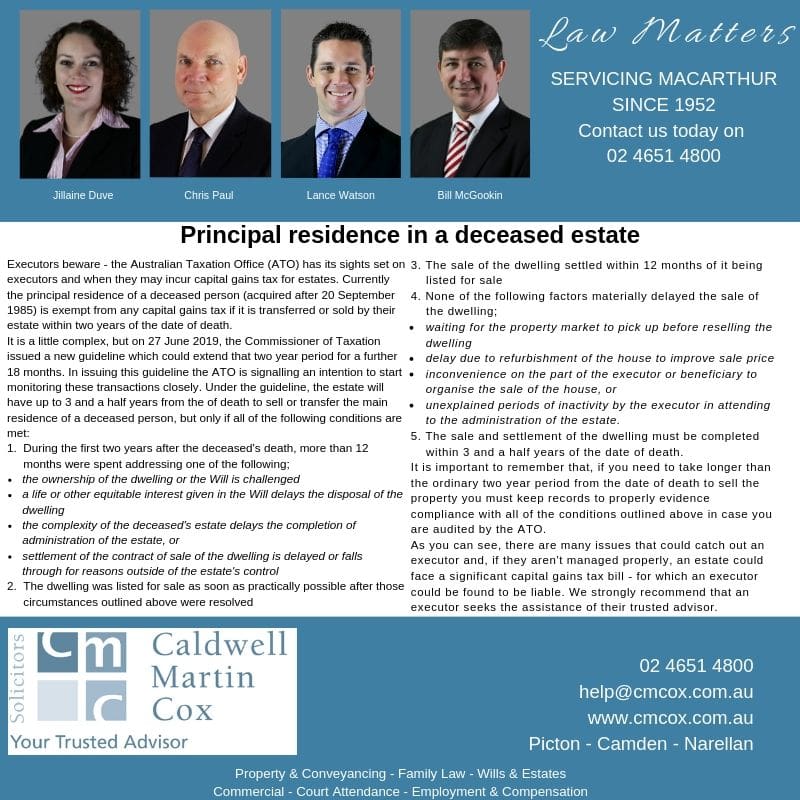It would seem that the Australian Taxation Office has its sights set on executors relating to capital gains tax for estates. In our latest article in The District Reporter, we discuss this in detail and the pitfalls to look out for.
Executors beware – the Australian Taxation Office (ATO) has its sights set on executors and when they may incur capital gains tax for estates. Currently the principal residence of a deceased person (acquired after 20 September 1985) is exempt from any capital gains tax if it is transferred or sold by their estate within two years of the date of death.
It is a little complex, but on 27 June 2019, the Commissioner of Taxation issued a new guideline which could extend that two year period for a further 18 months. In issuing this guideline the ATO is signalling an intention to start monitoring these transactions closely. Under the guideline, the estate will have up to 3 and a half years from the date of death to sell or transfer the main residence of a deceased person, but only if all of the following conditions are met:
-
During the first two years after the deceased’s death, more than 12 months were spent addressing one of the following:
-
the ownership of the dwelling or the Will is challenged
-
a life or other equitable interest given in the Will delays the disposal of the dwelling
-
the complexity of the deceased’s estate delays the completion of administration of the estate, or
-
settlement of the contract of sale of the dwelling is delayed or falls through for reasons outside of the estate’s control
-
-
The dwelling was listed for sale as soon as practically possible after those circumstances outlined above were resolved
-
The sale of the dwelling settled within 12 months of it being listed for sale
-
None of the following factors materially delayed the sale of the dwelling:
-
waiting for the property market to pick up before reselling the dwelling
-
delay due to refurbishment of the house to improve sale price
-
inconvenience on the part of the executor or beneficiary to organise the sale of the house, or
-
unexplained periods of inactivity by the executor in attending to the administration of the estate
-
-
The sale and settlement of the dwelling must be completed within 3 and a half years of the date of death.
It is important to remember that, if you need to take longer than the ordinary two year period from the date of death to sell the property you must keep records to properly evidence compliance with all of the conditions outlined above in case you are audited by the ATO.
As you can see, there are many issues that could catch out an executor and, if they aren’t managed properly, an estate could face a significant capital gains tax bill – for which an executor could be found to be liable. We strongly recommend that an executor seeks the assistance of their trusted advisor.




